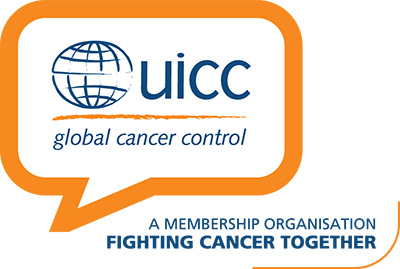The coronavirus pandemic is being compared to a battlefield, with health-care workers seen as the front-line soldiers in the war against the disease. There is certainly truth to that, insofar as doctors and nurses in many countries now face an unprecedented workload in saving lives, along with the heightened risk of contagion from the virus and the growing prospect of having to make difficult medical decisions in terms of allocating resources and continuing treatment.

Photo credit: Getty
While the coronavirus spreads, however, patients with other diseases continue to require essential care. Cancer represents a particular challenge, as patients’ long-term prospects depend heavily on access to treatment that weakens their immune systems (chemotherapy, radiation) or requires hospitalization (surgery). Thus, in the balance are the risks of delayed care against those of infection.
“Many establishments are managing to keep patients with cancer insulated, but how to keep them—as well as nurses—safe from contagion remains at the forefront of our concerns,” said Stella Bialous, RN, DrPH, FAAN, Professor at the University of California San Francisco School of Nursing and Immediate Past President of the International Society of Nurses in Cancer Care (ISNCC). “We only hope that oncology nurses who are taking care of immune-compromised patients are not rotated out to coronavirus care and then back in again.”
“Many establishments are managing to keep patients with cancer insulated, but how to keep them—as well as nurses—safe from contagion remains at the forefront of our concerns.”— Stella Bialous, RN, DrPH, FAAN
Tweet this quote
Challenges in Continuing Cancer Care
The prospect of having to interrupt treatment is another major concern. One cause is the possible reduction in staff due to illness or reallocation of personnel for the coronavirus response.
Shirley Ching, RN, PhD, Associate Professor at the School of Nursing, Hong Kong Polytechnic University and a 2016 Fellow of the Union for International Cancer Control (UICC), explained how the severe acute respiratory syndrome experience in 2003 allowed Hong Kong to rapidly adopt strategies at the outbreak of the coronavirus and continue cancer treatment without interruption. They included a complete suspension of visits, including to oncology wards.
“Oncology doctors and nurses communicate with family members, especially those of patients in critical condition, through telephone calls to update patients’ progress and provide psychological support,” Dr. Ching said. “Some in-person consultations have been replaced by phone consultations to reduce patients’ traveling to hospitals. Nurses provide education and support that enable patients to manage their care and even to continue with home chemotherapy through telephone calls. For those who must visit the hospital, nurses provide detailed explanations on wearing surgical masks and adopting proper hand hygiene practice and screen them for fever, respiratory symptoms, and travel history.”
In the United Kingdom, Andrew Dimech, RN, BN, BSc, a member of the ISNCC Board of Directors and Deputy Chief Nurse and Lead Cancer Nurse at The Royal Marsden, said that the response nationally has been remarkable, both within and between institutions, as departments and hospitals have come together to manage and allocate resources. “It is an enormous undertaking, which allows local hospitals to receive the support they need,” said Mr. Dimech. “The entire workforce is mobilized to ensure that adequate care is provided. Nurses with experience in critical care are given refresher courses, if necessary, to help on the coronavirus front—all nurses can play an essential role, even in cancer care and other settings, with adequate support.”
“Decisions to delay treatment, if required for the safety of our patients, are made on a case-by-case basis by the patients’ multiprofessional team.”— Andrew Dimech, RN, BN, BSc
Tweet this quote
The Royal Marsden is continuing to deliver cancer care and treatment as well as provide local and national support in respect to the coronavirus. “Decisions to delay treatment, if required for the safety of our patients, are made on a case-by-case basis by the patients’ multiprofessional team. The Royal Marsden is engaged in continuing to provide treatment to patients for as long as possible,” said Mr. Dimech.
Disparities Between Developed Nations and Low- and Middle-Income Countries
Another challenge to providing uninterrupted cancer treatment is a lack of material resources. Many hospitals, particularly in low- and middle-income countries, may not be able to afford to continue cancer care, according to Patsy Yates, PhD, MSocSc, President of ISNCC and Executive Dean, Faculty of Health, Queensland University of Technology, Australia. The continued availability of personal protective equipment, for which there is currently a global shortage, is another concern. It not only protects nurses from infection, but also when handling cancer medication.
“The best way to celebrate nurses is to have a real discussion on how to address this [nursing] shortage. This will not be our last pandemic.”— Patsy Yates, PhD, MSocSc
Tweet this quote
“We also face the prospect of delays in screenings and other early-detection diagnostics,” said Dr. Yates. “As these actions influence the effectiveness of prevention and care, the coronavirus may, down the line, increase the disparities that already exist between developed nations and low- and middle-income countries—regardless of whether treatments are interrupted or not.” This only adds to the inequality burden faced by low- and middle-income countries, where exercising effective social distancing in poor, high-density, urban areas is extremely challenging.
Supriya Mondal, BSc, MSc, Associate Professor at Murshidabad Medical College and Hospital and a clinical specialist nurse from Tata Medical Centre, Kolkata, conveyed the disruption caused by the coronavirus and the resulting government lockdown on everyday life in India, particularly rural communities. A 2016 UICC Fellow, Ms. Mondal has gained experience in facilitating the training of nursing staff and health-care professionals in supportive care and counseling and has conducted an epidemiologic study of the coronavirus and its projected growth in India.
Medical Rationing
Ultimately, decisions to pursue or delay treatment have to be made with little guidance as to the optimal outcome, since so little is still known about the coronavirus. Lucy Gossage, MD, PhD, an oncologist based in Cambridge, United Kingdom, writes in an opinion piece in The Guardian: “We will be counseling against treatments we would normally recommend. We will, no doubt, see some patients die sooner, not because of coronavirus but because we are not able to treat their cancers as we would normally.”
Another monumental decision nurses and doctors may have to face is whether to treat a patient with cancer who contracts coronavirus when essential medical equipment, such as ventilators, is in short supply. As a young nurse, Dr. Bialous was part of a team that had to choose between providing a particular treatment to a young person with terminal cancer or to an older person with cardiovascular disease—they could not treat both.
“No one wants to be in that situation. You never forget. But we are reading about situations like this potentially arising in the United States and elsewhere, and I wonder if this is happening in wealthy countries, what about countries that don’t have the health resources to provide enough treatment?”

Addressing the Global Shortage of Nurses
The primary concern, however, remains the shortage of nursing staff, and the fact is, as Drs. Yates and Bialous emphasized, the pandemic has only made worse a situation that already existed. In 2014, the World Health Organization estimated a need for more than 9 million nurses by 2030—according to a study from 2019, that shortfall is only projected to decrease by 2 million. Again, this disproportionately affects low-income countries as well as rural and remote areas.
“The best way to celebrate nurses is to have a real discussion on how to address this shortage,” said Dr. Yates. “This will not be our last pandemic.”
There are discussions during the current crisis to graduate nurses early. “This may work in the northern hemisphere, where graduation dates are near, but in the southern hemisphere, they graduate later in the year. Furthermore, we may not be able to assign them to specialized care such as oncology,” said Dr. Bialous.
Nurses face extended work hours in already stressful conditions where there are staff shortages. It cannot be denied that this will exact a psychological toll in the form of burnout and emotional distress, as well as generate anxiety about nurses’ safety and that of their families if they are exposed to the coronavirus.
Mr. Dimech, Dr. Bialous, and Dr. Yates all emphasized that nurses will “double down” to make up for staff shortages—because that is what they do. “Nurses are willing to make the necessary sacrifices if, at the end of a shift, they don’t see people ignoring shelter-in-place policies and disregarding the essential need for social distancing,” said Dr. Bialous.
The public’s engagement is essential. It is the only way to mitigate the risks of overwhelming health systems even more. Dr. Bialous would argue that it is not the nurses and doctors but individuals in every community who are the ones on the front line of this battle against coronavirus. “It’s their response that will minimize transmission through social distancing, so health workers remain able to cope and deliver treatment as they were trained to do.”
DISCLOSURE: For disclosures of the quoted speakers, visit uicc.org.
Source: UICC: World Health Day: Celebrating the Work of Nurses in the Response to the Coronavirus. Available at uicc.org. Accessed April 14, 2020.

